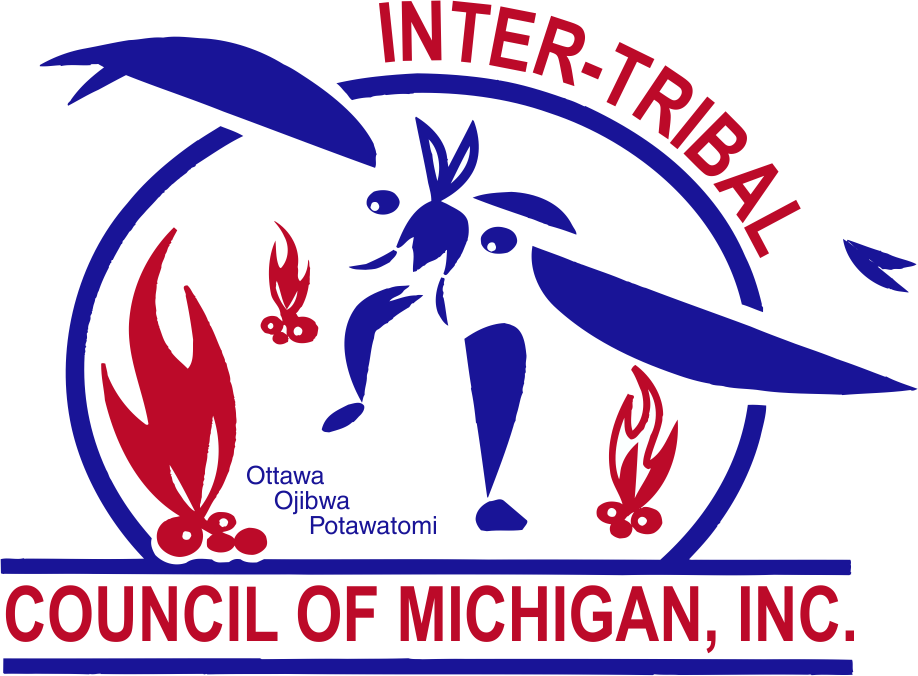Category: Cancer Prevention – Resource
Cancer Prevention - Resource
Food Farmacy
The Inter-Tribal Council of Michigan supports three Michigan tribal communities in addressing youth and adult nutrition related health disparities, including overweight and obesity, through a culturally and community-based Native American Nutrition Prescription Program – Food Farmacy.
- Hannahville Indian Community
- Little Traverse Bay Bands of Odawa Indians
- Pokagon Band of Potawatomi Indians
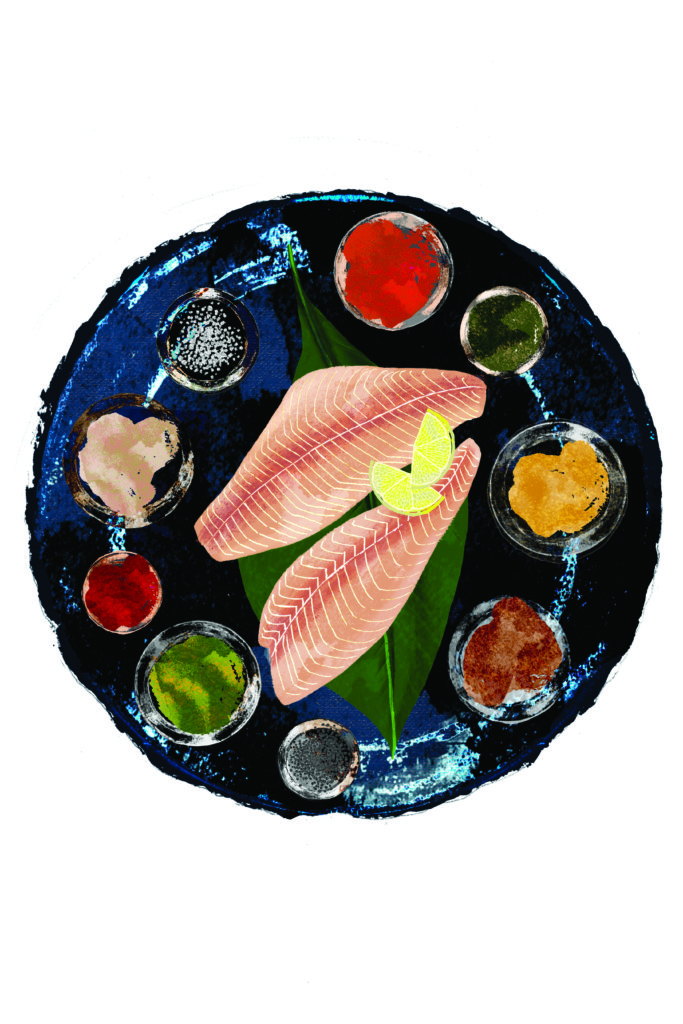
Cancer Prevention - Resource
Colorectal Cancer Awareness
Inter-Tribal Council of Michigan, Inc. Institutional
Colorectal Cancer Awareness
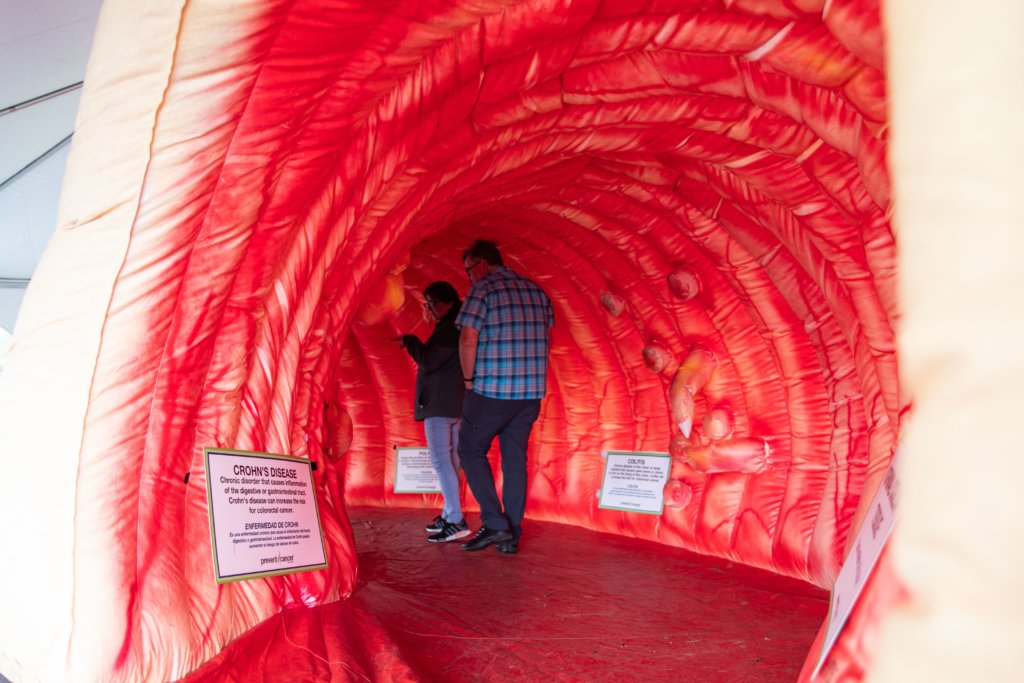
SAULT STE. MARIE — Colon Cancer is the third leading cancer among American Indian men and women in Michigan. A greater percentage of American Indian men and women with colon cancer are diagnosed at younger ages compared to the general population in Michigan. Screening rates are also lower among the American Indian population. This suggests a need for increased education and screening among the American Indian population.
“The good news is that Colon Cancer is preventable,” states Noel Pingatore, Program Manager for the Inter-Tribal Council of Michigan, “A screening colonoscopy can actually remove polyps in the intestine before they become cancerous.” There are also new and easier to use types of stool sampling screening tests that can be completed at home.” Home stool screening tests are called Fecal Occult Blood Tests or FOBT. They often require diet and medication restrictions and three separate stool samples. However, the new Fecal Immunochemical Tests, or FIT, has no dietary or medication restrictions and only requires one or two samples. The FIT is much easier to use than the older FOBT versions.
The American Cancer Society recommends testing begin at age 50 for those at average risk and earlier for those at increased risk. Screening tests include:
- Colonoscopy everyone 10 years
- FOBT or FIT every year.
Talk with your health care provider about your risk for colon cancer and which screening tests are best for you. The best test is the one that gets done.
For more information on colon cancer visit: www.cancer.org or http://www.cdc.gov/cancer/colorectal/
The Inter-Tribal Council of Michigan, Inc. is a 501(C)3 non-profit corporation duly organized under a state charter filed April 16, 1968. The agency represents all twelve federally recognized tribes in Michigan. The agency is divided into several different divisions, including: headstart; early headstart; health services; behavioral health; environmental services; child, family, and education services; and administration. The agency employs approximately 160 employees. 35 of these employees are based in the agency’s central office in Sault Ste. Marie, while member tribes have offices and staff on site. Visit https://www.itcmi.org/ to learn more about the agency. The Michigan Three Fires Cancer Consortium is funded by the CDC under grant number 1 NU58DP006275-01-00
Media Contact:
Mike Willette
Communications Specialist
Inter-Tribal Council of Michigan
906-632-6896 x.110
mwillette@itcmi.
Cancer Prevention - Resource
Breast Cancer & Cervical Cancer Control (BC3NP)
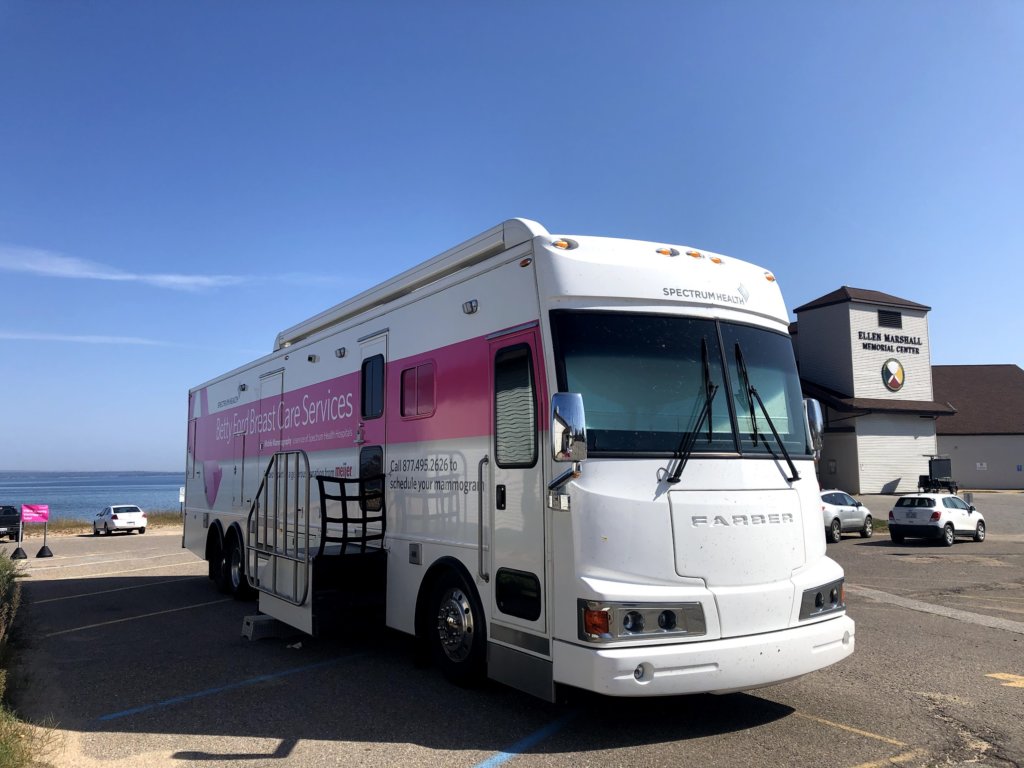
Kwe Brave
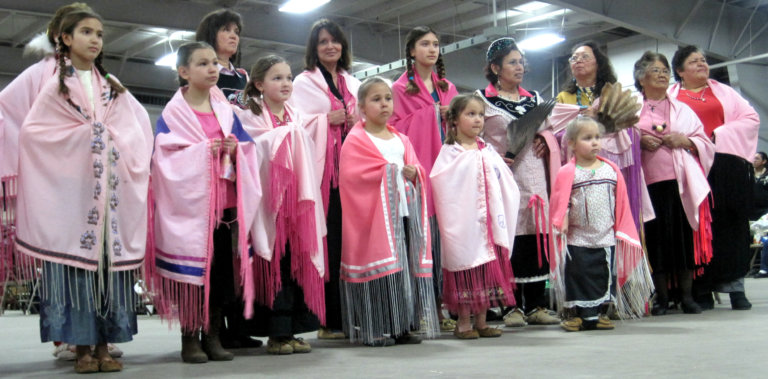
Kwe Brave resource page for Native American breast cancer survivors and caregivers. Kwe is the Ojibwe word for women and aims to honor our sisters that face cancer diagnosis.
Cancer Control Resources
Cancer Prevention - Resource
Nutrition and Food Access
Nutrition-related chronic disease (diabetes, cancer, and heart disease) impacts many and can be prevented through living a healthy lifestyle including physical activity and proper nutrition. In an ever-changing world with a complicated food supply, nutritional knowledge is more important than ever to support healthy behavior change. The ITCM has initiated this compendium of culturally appropriate materials to increase both the knowledge and the consumption of healthy traditional foods to prevent disease and to achieve improved health.

Resources
The USDA Food Distribution Programs on Indian Reservations (FDPIR) provides food to income-eligible Native American families. Below is a list of FDPIR locations in Michigan.
Little River Band of Ottawa Indians
2608 Government Center Drive
Manistee, MI 49660
Ken LaHaye, Director of Food Distribution
231-398-6715
kenlahaye@lrboi-nsn.gov
Little Traverse Bay Band of Odawa Indians
824 Charlevoix Avenue
Petoskey, MI 49770
Joe VanAlstine, FDPIR Program Specialist
231-242-1620
jvanalstine@ltbbodawa-nsn.gov
Pokagon Band of Potawatomi Indians
58620 Sink Road
Dowagiac, MI 49047
David Halquist, Jr., FDPIR Supervisor
888-281-1111
david.halquist.jr@pokagonband-nsn.gov
Bay Mills Indian Community
12497 W. Lakeshore Drive
Brimley, MI 49715
Kristine Schwiderson, FDPIR Director
906-248-2528
kschwiderson@baymills.org
Sault Sainte Marie Tribe of Chippewa Indians
3601 S. Mackinac Trail
Sault Sainte Marie, MI 49783
Tony Nertoli, FDPIR Director
906-635-6076
anertoli@saulttribe.net
Keweenaw Bay Indian Community
16613 Skanee Road
L’Anse, MI 49946
Darren Webb, FDPIR Director
906-524-7340
dwebb@kbic-nsn.gov
- MSU Extension and tribal partners highlight Indigenous foods through Cooking Matters program
- Food Sovereignty: Clancy Harrison on Topic of Food Insecurity
- Cookbooks
- The Sioux Chef Mission is committed to revitalizing Native American cuisine and reclaiming an important culinary culture long buried and often inaccessible.
- Eating with the Seasons – Anishinaabeg Great Lakes Region – Derek Nicholas
Anishinaabek Cooking Videos
Anishinaabek Cooking Videos
Cancer Prevention - Resource
Commercial & Traditional Tabacco

American Indian Commercial Tobacco Program (AICTP)
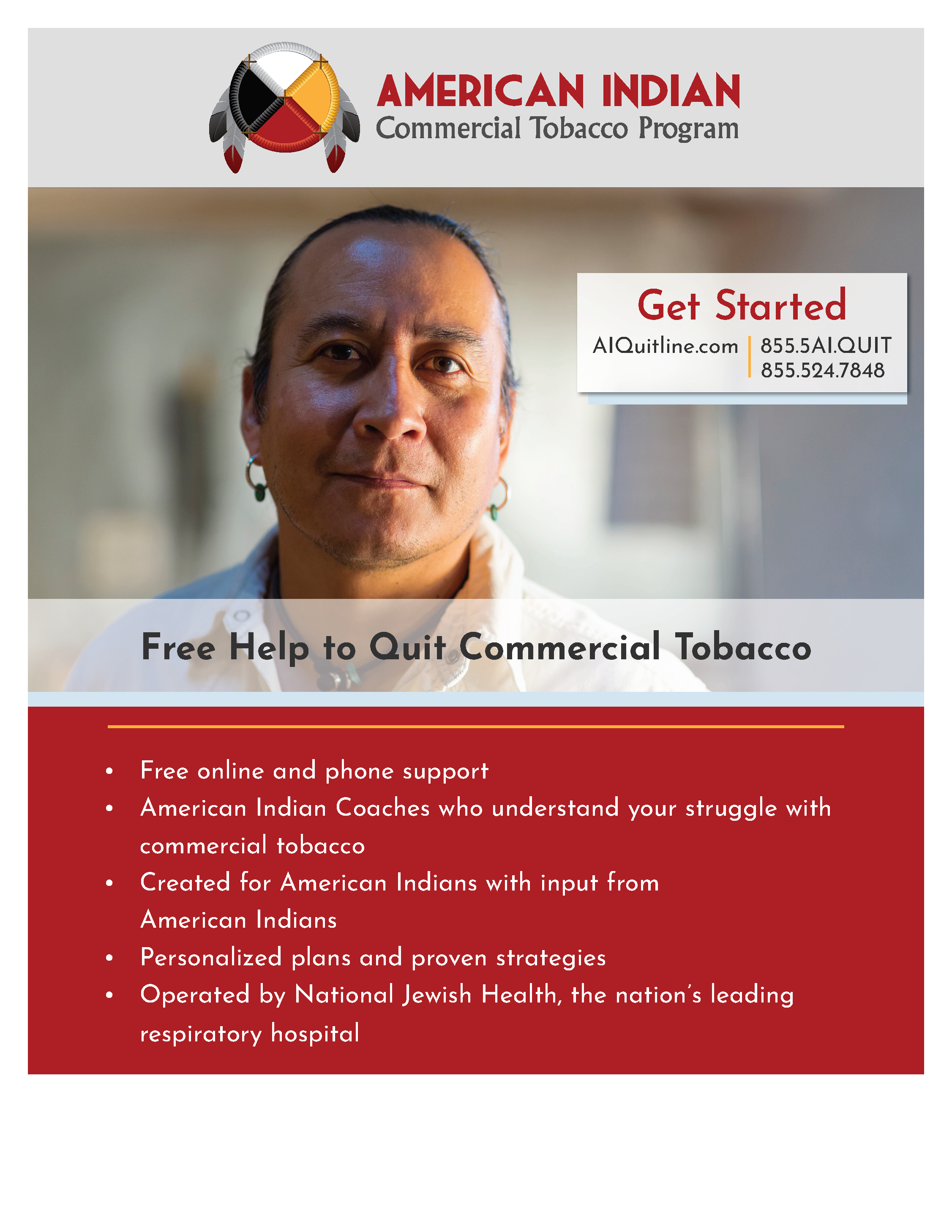
The American Indian Commercial Tobacco Program (AICTP) is LIVE and ready to use!
Call today to receive free, culturally-tailored help, including:
- Up to 10 coaching calls per quit attempt with a dedicated Native coach.
- 8 weeks of nicotine replacement therapy with combination medication as an option.
- Focus on commercial tobacco use.
- Open to men, women, and elders of all ages and tribal nations.
- AICTP Website: https://aiquitline.com/
- Download PDF Poster
For our future generations, call today!
855-5AI-QUIT
HOURS
Monday – Friday: 9:00 a.m. – 11:00 p.m. Eastern Time
Saturday: 10:00 a.m. – 5:00 p.m. Eastern Time
Sunday: 10:00 a.m. – 6:30 p.m. Eastern Time
Frequently Asked Questions
Q. Can I call if I am pregnant?
A. Yes
Q. Can youth under 18 call the quitline?
A. Yes
Q. Can I call for help with smokeless tobacco?
A. Yes
Tobacco Screening Policy
Commercial tobacco use is a well known problem among Native American communities in Michigan. To help address this issue the Inter-Tribal Council of Michigan has worked to help address this problem in a number of ways including addressing tribal clinical policies.
Please see the following resources to learn more about efforts of work done at the clinical policy level in tribal sites in Michigan. These resources cover policy, signage, youth screening, using the CHANGE tool and communication campaigns.
National Native Network
We are a national network of Tribes, tribal organizations and health programs working to decrease commercial tobacco use and cancer health disparities among American Indians and Alaska Natives (AI/AN) across the U.S. We offer technical assistance, culturally relevant resources, and a place to share up-to-date information and lessons learned, as part of a community of tribal and tribal-serving public health programs.
We strive to decrease cancer-related health disparities among AI/AN communities and promote the roles of traditional tobacco and other traditional medicines and ways of living, improving public health while protecting tribal sovereignty and resiliency.
The strength of our Network lays in partnerships between Tribes and tribal, national, state, and local organizations across Indian Country. The Network is intimately connected to the communities we serve and brings a wealth of knowledge of culturally based approaches for commercial tobacco and cancer prevention and control.
The National Native Network is jointly funded by the Office on Smoking and Health (OSH) and Division of Cancer Prevention and Control (DCPC) under Cooperative Agreement # 1U58DP004979-01. The Network is administered by the Inter-Tribal Council of Michigan and directed by a board composed of four partner tribal organizations:
Visit our website for full information, resources, and social media links. Email us at nnn@www.itcmi.org for any questions.
